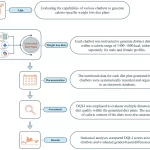New Study Highlights Variability in Survival and Care Needs
A groundbreaking study published in The BMJ has shed new light on life expectancy following a dementia diagnosis, revealing how survival rates vary based on age, gender, region, and type of dementia. The study underscores the urgent need for personalized care strategies to improve outcomes for patients and their families.
Key Findings: Life Expectancy After Diagnosis
The systematic review, conducted by researchers in the Netherlands, analyzed 261 studies spanning 40 years and involving over 5 million people with dementia. Key findings include:
- Age Impact: Dementia reduces life expectancy by up to 13 years when diagnosed at age 65, 3-4 years at age 80, and about 2 years at age 85.
- Gender Disparities: Women tend to live longer with dementia than men, with life expectancy ranging from 9 years (age 60) to 4.5 years (age 85) for women, compared to 6.5 years to just over 2 years for men in the same age brackets.
- Regional Differences: Survival is up to 1.4 years longer among Asian populations compared to other regions.
- Disease Type: People with Alzheimer’s disease, a common form of dementia, live an average of 1.4 years longer than those with other types of dementia.
Nursing Home Admissions: A Growing Concern
The study also explored the progression of dementia to nursing home care:
- The average time to nursing home admission is just over three years.
- 13% of patients are admitted within the first year after diagnosis, rising to 35% by three years and 57% by five years.
Call for Personalized Prognosis
The authors emphasized that these findings are observational and urged future studies to focus on individualized prognosis, considering personal, social, and medical factors. They advocate for more precise, context-sensitive insights to guide healthcare services and optimize quality of life for patients and caregivers.
A Global Challenge
With 10 million people worldwide receiving a dementia diagnosis each year, the study highlights the immense global challenge posed by this condition. Variations in survival and care needs underline the importance of tailored interventions and improved support systems.
The researchers concluded, “To enhance future healthcare services and optimize quality of life for people with dementia and their families, it is crucial that we strive for more precise insights that go beyond survival alone.”
This study provides critical data for clinicians, policymakers, and families navigating the complexities of dementia care, paving the way for improved patient outcomes and support.











